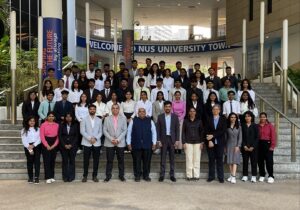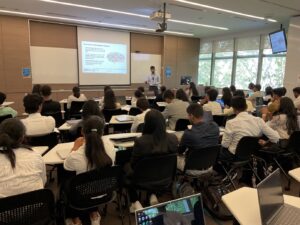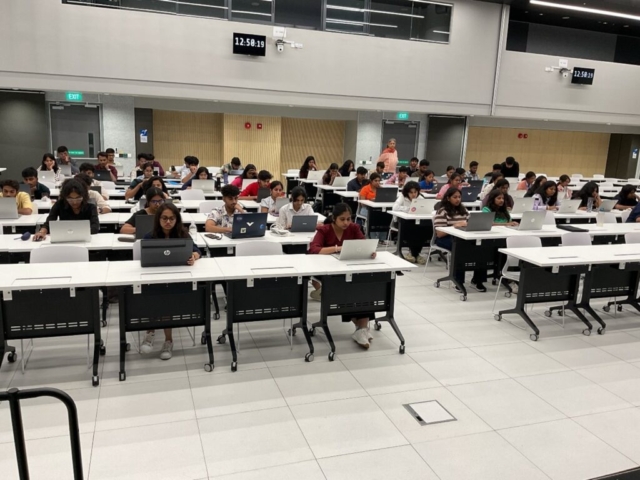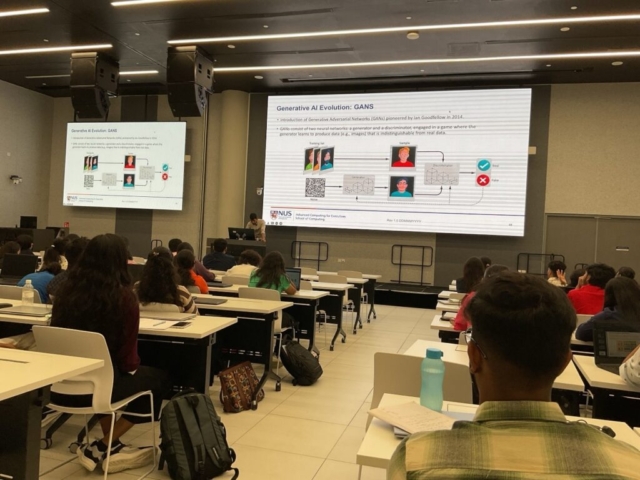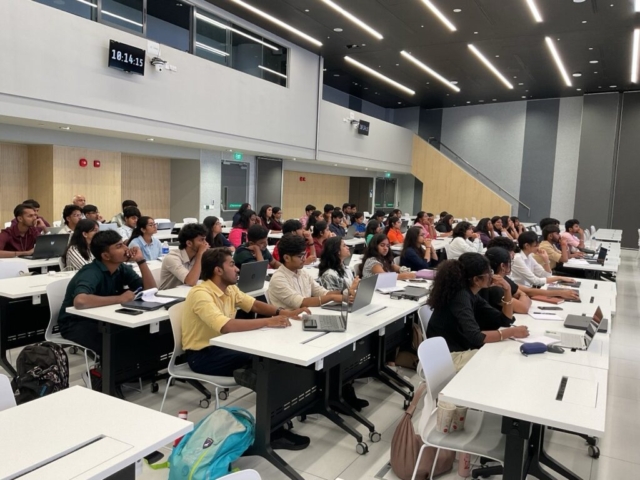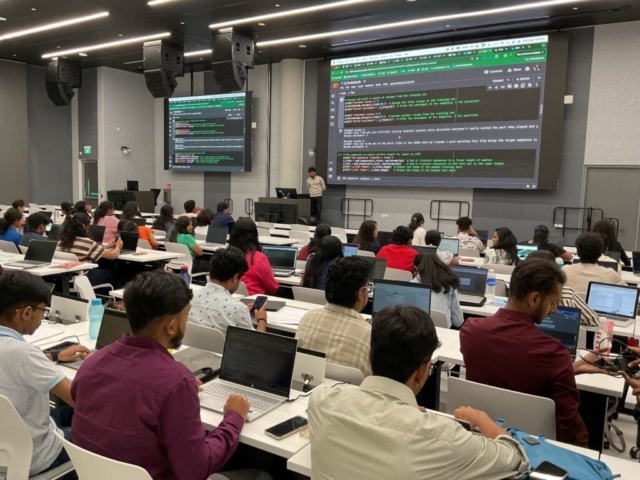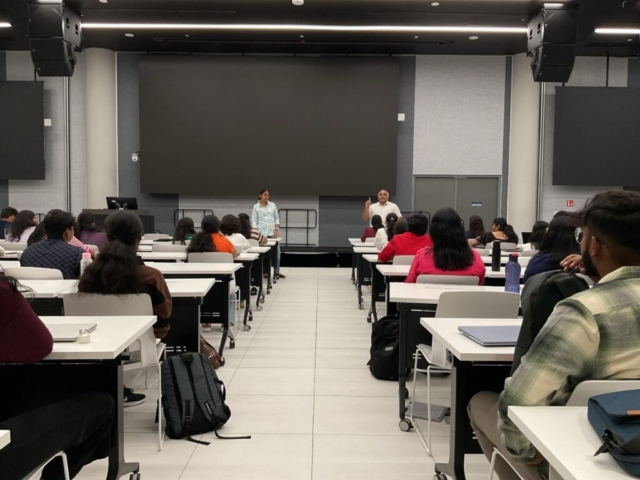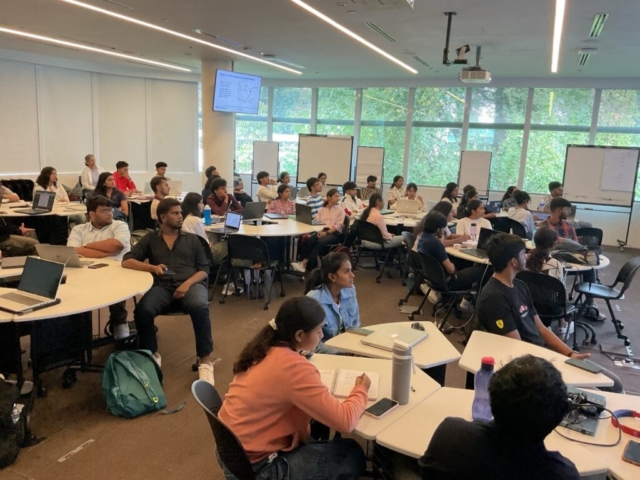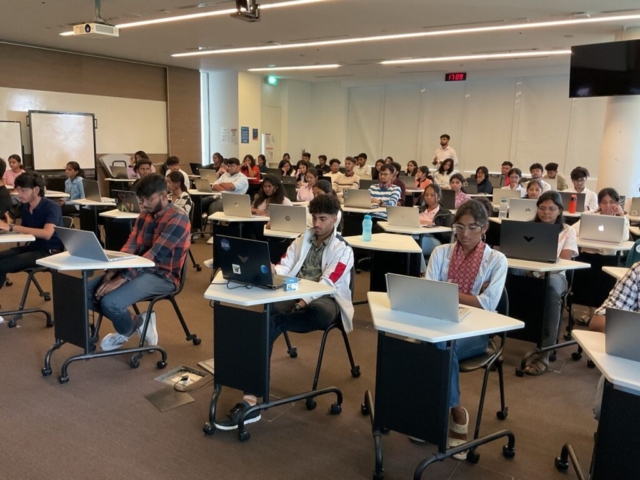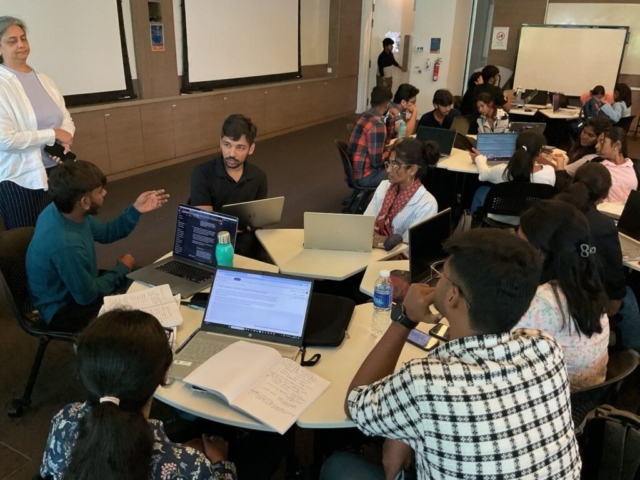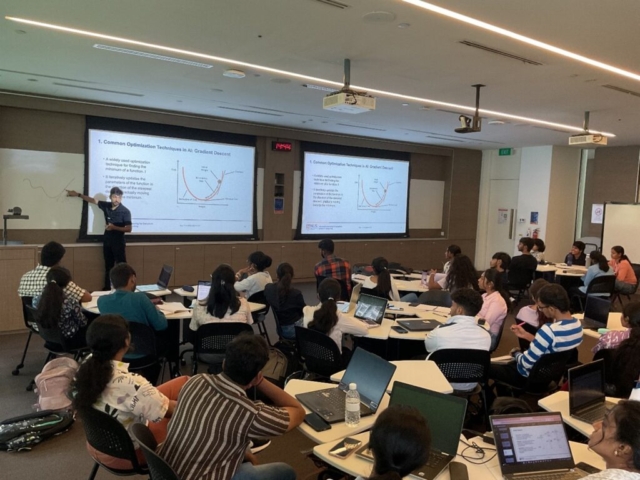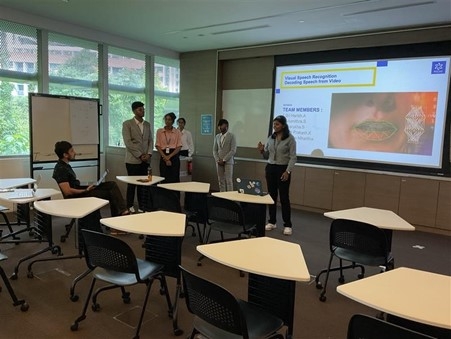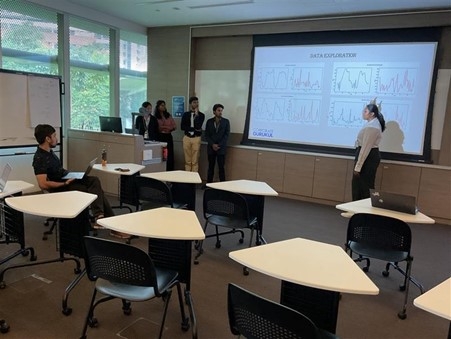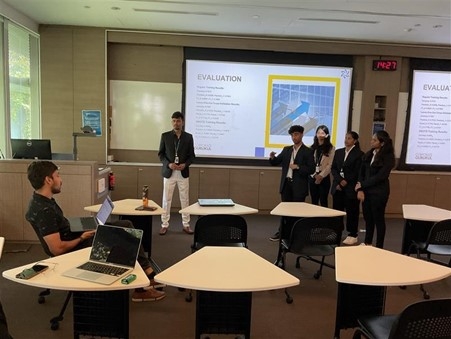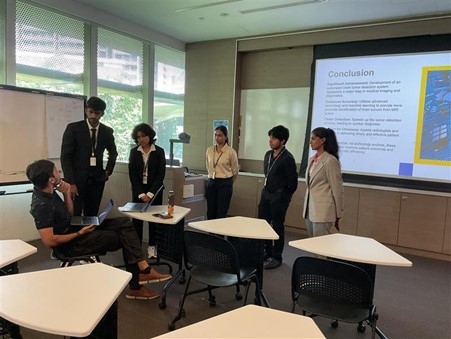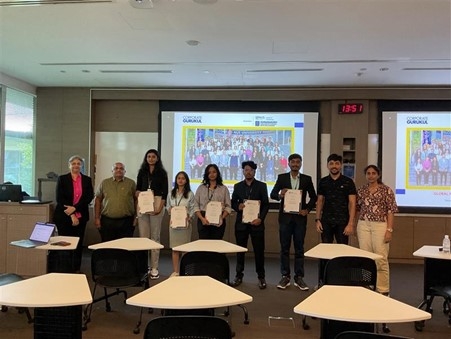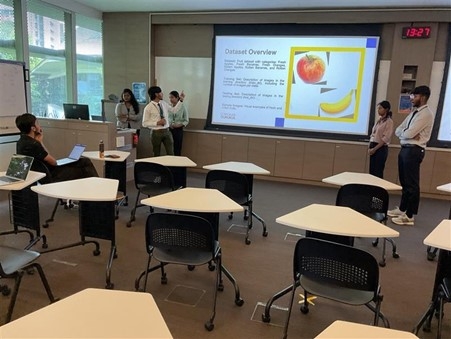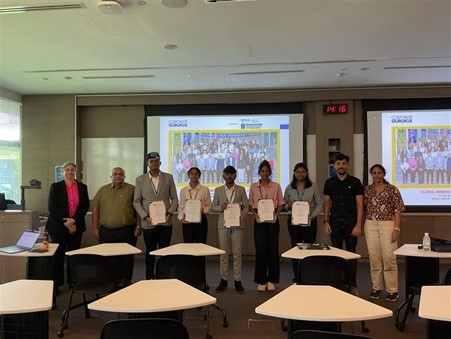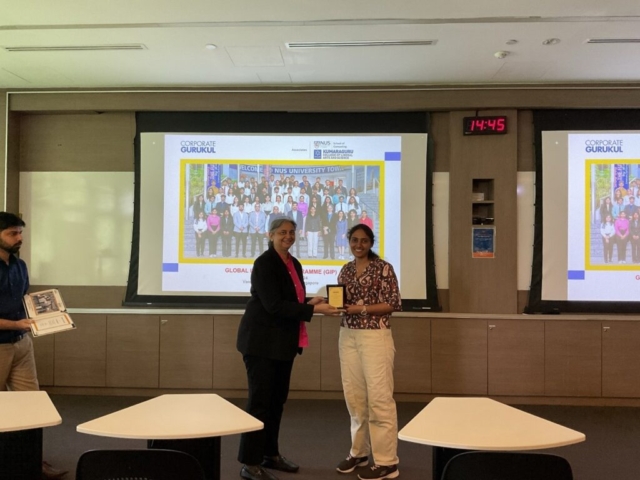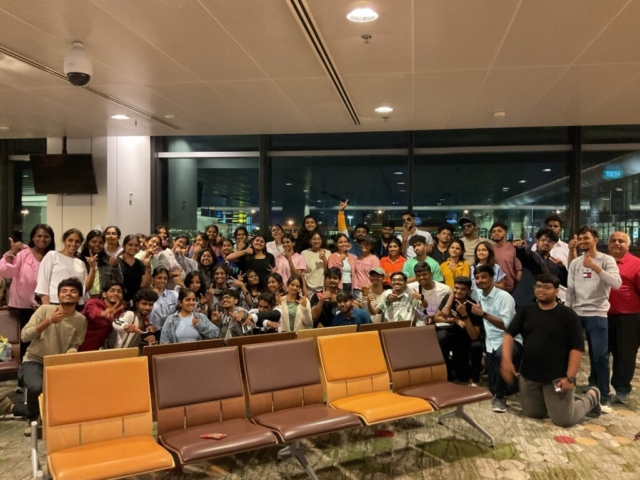
- This event has passed.
Global Immersion Program – National University of Singapore
September 1, 2024 @ 8:00 am - September 6, 2024 @ 5:00 pm
A group of 55 students, including 53 from Data Science and 2 from Commerce, is participating in a one-week Global Immersion program on AI & Deep Learning at the National University of Singapore (NUS). On the first day, they attended a workshop that covered the significance of Data Analytics in business, an introduction to Machine Learning, and its various applications. The session explored different types of Machine Learning, such as Supervised, Unsupervised, and Reinforcement Learning, along with common algorithms like Regression, Classification, and Clustering. The workshop included hands-on mini-projects, where students applied their knowledge using Collab/Python for tasks like Customer Churn Prediction, Housing Price Prediction, and Customer Segmentation.
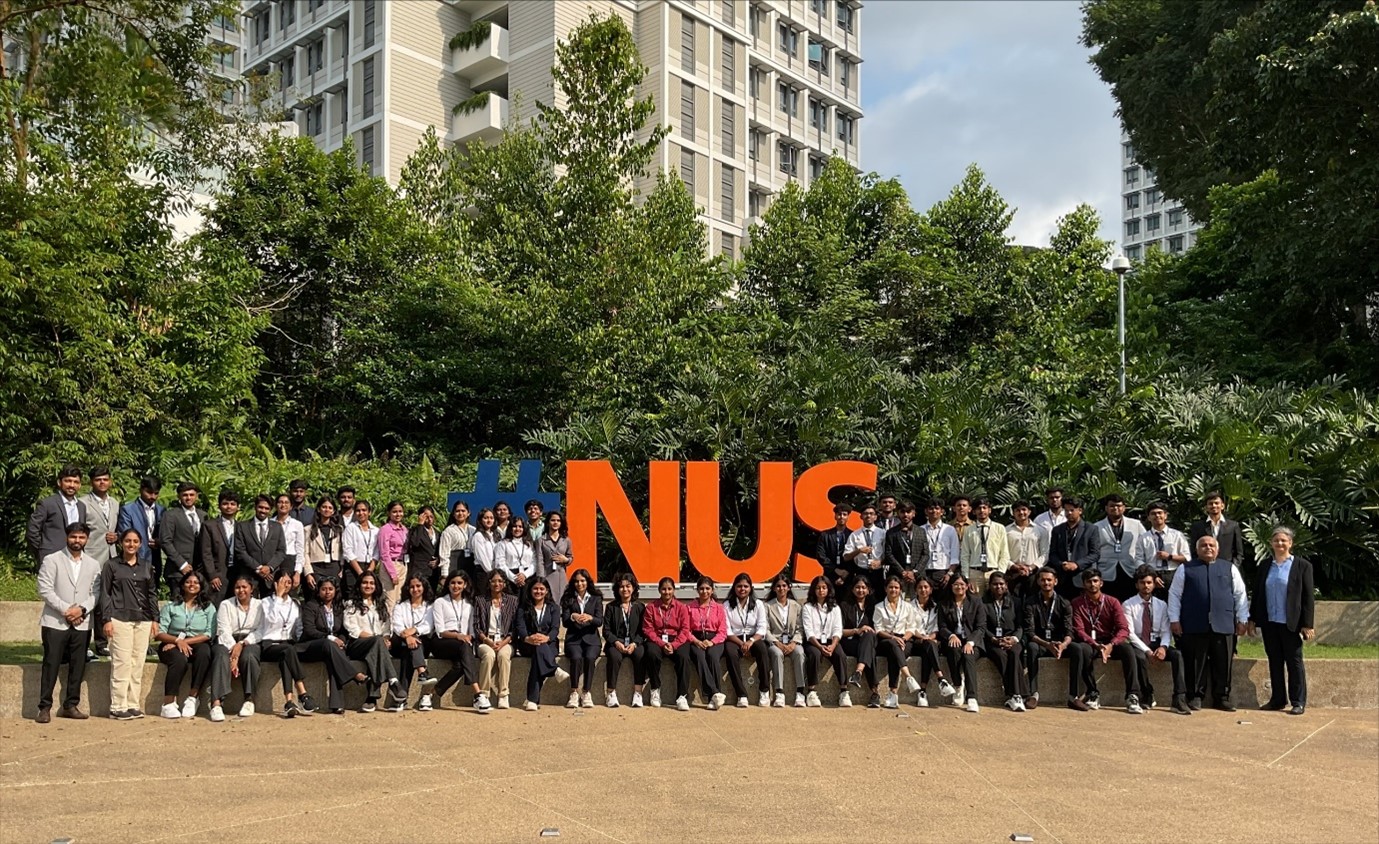
On Day 2, students engaged in a blend of academic sessions, an online exam, a mock project presentation, and a visit to Sentosa Island. They delved into Neural Networks, with a particular focus on CNN architecture for image data and the application of pre-trained models. The session covered specialized CNN architectures such as VGG and YOLO, which are utilized for image classification and object detection. Additionally, RNN architecture for sequential data and the ResNet model were introduced. Practical exercises involved working with image data and applying CNNs for Traffic Sign Classification, providing students with hands-on experience in these techniques.
On Day 3, students engaged in a blend of classroom sessions, an online exam, and team-based project discussions with a professor from NUS. In class, they focused on optimizing pre-trained models for specific business applications. They explored techniques for adapting these models to different domains, including adding new layers to capture domain-specific features and fine-tuning existing layers to enhance performance on specialized tasks. The session covered effective fine-tuning methods, such as regularization strategies and adjusting learning rates, along with hyperparameter tuning techniques like beam search and Bayesian optimization. Ethical considerations, such as addressing bias, protecting privacy, and ensuring transparency, were also discussed. During practical exercises, students revisited previous projects to apply these advanced techniques, making them more relevant and impactful for business use cases.
On Day 4, the students immersed themselves in a world of adventure and imagination,
On Day 5, our students presented their projects to NUS professors. Each team was evaluated and graded by the professors, who also provided valuable suggestions. The students demonstrated their developed projects and received insightful feedback. The valedictory ceremony followed, where certificates were awarded by NUS.
